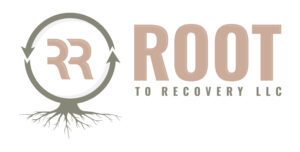 Postpartum depression is a serious condition that affects many new mothers. It is caused by various factors, including the physical and emotional strain of becoming a mother, adjusting to a new lifestyle, and the overwhelming responsibility of caring for a newborn.
Postpartum depression is a serious condition that affects many new mothers. It is caused by various factors, including the physical and emotional strain of becoming a mother, adjusting to a new lifestyle, and the overwhelming responsibility of caring for a newborn.
For many women, the sudden shift in lifestyle can be overwhelming and difficult to manage. Postpartum depression manifests differently for each woman, but feelings of sadness, exhaustion, low self-esteem, irritability, and difficulty bonding with the baby typically characterize it. For some women, postpartum depression can last for months, making it difficult to cope with everyday life and enjoy the pleasures of life.
Symptoms of Postpartum Depression
While the exact reasons for postpartum depression are unknown, researchers suggest that it may be caused by a certain chemical imbalance or neural circuitry as well as fluctuating hormonal changes.
Women encountering depression after pregnancy may experience the following signs:
- Lack of sleep and agitation
- Lethargy and excessive sleeping
- Prolonged fatigue, indecisiveness, and impaired memory
- Consuming more food or significantly less than usual
- Overpowering grief and hopelessness, followed by unexpected bursts of tears
- Insufficient motivation or energy
- A strong sense of remorse, worthlessness, or inadequacy
- Loss of interest in daily activities
- Absence from friends and family gatherings
- Physical ailments such as headaches, indigestion, and sore muscles
- Constant panic attacks, anxiety, racing heartbeat, and frightening thoughts
- Bad temper or agitation, as well as outbursts directed at others
- The anxiety of not being an ideal mother or agony over self-loss
Factors That Contribute to Postpartum Depression
Women experiencing severe depression may also have racing thoughts of hurting their babies or themselves. Almost 1 to 4 out of every thousand childbirths lead to postpartum psychosis, followed by increased anxiety, hallucinations, or mood swings.
- Labor that did not follow the birth plan
- Tiredness from a long delivery
- Sleeplessness due to a colic newborn
- Breastfeeding difficulties
- Physical discomfort while recovering
- No family support to help with the transition
- Having trouble losing pregnancy weight
- Routine changes at home and at work
- The need to be the “ideal” mother
- Doubt your abilities as a mother
What is the Difference Between Postpartum Depression and Baby Blues?
Baby Blues is a common term to describe the fluctuating moods that many new mothers go through. Stress, anxiety, fatigue, isolation, difficulty sleeping, or loss of appetite can all result from the abrupt hormonal changes that occur after childbirth. Approximately 80 percent of new mothers document feeling vulnerable and emotionally weak in the first four weeks after giving birth.
For some new mothers, the moment after birth can be extremely overwhelming, filled with happiness, and the next minute immense sadness. Many mothers find themselves crying at random times, and with the excruciating pain during the breastfeeding period, many find it hard to connect with their babies.
What Does Postpartum Depression Look Like?
Medical descriptions only provide a part of the facts. Although many mothers report experiencing some primary emotions, postpartum depression and mood disorders are unique to each woman.
Postpartum depression can make you feel hopeless and broken. Whether it is caused by labor stress, or even a supposed failure of being the perfect mother. Here’s a ray of hope if you’re feeling depressed: although what you’re going through may make you feel alone, you’re not.
How to Recover from Postpartum Sadness
If you notice that you aren’t feeling like yourself and suspect that you may be suffering from postpartum depression, know that you’re not at fault. In fact, remind yourself that you are not manipulating your emotions. Postpartum is real, it exists, and it can be treated. Just know that you are not alone.
The road to recovery comprises seeking assistance toward healing. Often acknowledging the condition for what it is, is the first step; the second is talking to a professional.
Postpartum depression treatment options include various psychotherapy types, which are frequently combined with medications. Treatment can assist you in developing the skills required to deal with everyday challenges and managing emotions.
Therapy For New Mothers
It is crucial to talk to a healthcare provider, such as a therapist, who is knowledgeable and experienced in treating postpartum depression. Therapists at Root to Recovery can provide strategies to cope with symptoms and create a personalized plan to support recovery.
Additionally, support groups can be an effective resource to connect with other mothers and build a sense of community. It is also important to practice self-care, such as getting enough rest, eating healthy meals, and engaging in activities that bring joy. Focusing on your mental health is essential for postpartum recovery.

